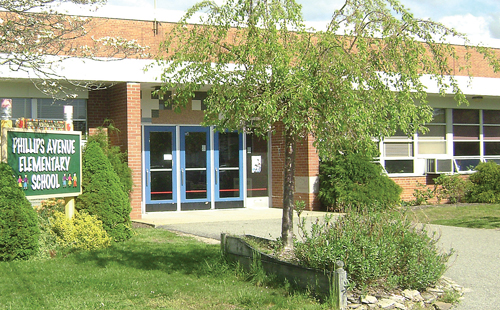Column: Numbers-driven Common Core initiative ignores life’s realities

Here’s a not-so-bold prediction on an uncertain future.
State officials are going to have to backtrack mightily on the Common Core State Standards now being used in public schools to, supposedly, better prepare all American children for college and “21st-century employment.” It’s going to be quite a drastic reversal and, for many outspoken officials, an embarrassment. But like the Department of Transportation having to count a certain number of fatalities at an intersection before erecting a stoplight, there will have to be victims first.

And those victims will likely be the poorest among us.
Consider that many children in poverty-stricken areas will still be living in single-parent or no-parent households in our new, Common Core world. They still won’t be eating or sleeping properly. They won’t be getting proper medical attention for physical or emotional issues that interfere with school. They won’t be getting help with homework, or even having their homework checked at home. In fact, extra attention for such students will be increasingly funneled away from them, as the focus shifts to teaching to the Common Core assessments.
For these kids, school’s simply getting harder, with no significant amount of funding set aside to provide them better access to school supplies, computers and internet access, or any plans to expand the school day or school year or bulk up after-school enrichment programs. With higher test failure rates, there’s also sure to be a huge spike in students in need of additional support through mandated programs such as academic intervention services. Where does that money come from?
State officials keep arguing that we must adopt Common Core because America’s education system lags behind those of other industrialized nations. But they never acknowledge that much of the disparity is accounted for by the performance of students in poor and non-English-speaking immigrant communities, which aren’t as prevalent in more homogeneous nations like Finland and South Korea.
While the performance of top-scoring students may improve under the more vigorous Common Core standards — they and their parents and tutors are up to the challenge! — students in many poor and working-class households will see scores dip. Eventually, as these children grow increasingly frustrated with school, dropout rates will rise. This will lead to higher unemployment and incarceration rates, prolonged cycles of generational poverty and a widening disparity between rich and poor.
Let’s use some common sense to break this down.
Trust that most kids from Long Island’s Jericho, Syosset and Commack school districts, for example, will be fine in college — no matter how they perform under the Common Core. And many of them will be just fine after college, too, no matter how they perform in college. This is thanks to engaged parents — and many of those parents’ connections to people already established in their child’s career field of choice.
The aforementioned districts and others like them will likely see their state assessment scores rise across the board, though without much real-world benefit — other than maybe having graduates attend marginally better colleges.
In the economically diverse Riverhead School District, the state has revealed that for the 2012-13 year, 74.7 percent of students in grades 3 through 8 failed to meet the state’s math proficiency standard, and 73.8 percent failed to meet the ELA standard.
Those numbers will change very little moving forward (at least not after some initial curriculum adjustments). Here’s why. In Riverhead, scores will increase somewhat for wealthier students but will fall at about the same rate, with potentially disastrous results, for those who don’t have the same support systems at home. Those in the middle will break one way or the other.
When these disparate results between wealthier districts and the rest of the state become apparent — especially in New York City — the backtracking on these numbers-driven policies will begin.
Yes, it’s my prediction Common Core will be reversed. But it’s also my hope. My fear is that so much money will be tied up in pricey books, testing materials and other increasingly entrenched funding sources for this initiative that the politicians and policymakers won’t ever budge.
Meanwhile, our teachers will remain handcuffed and will continue teaching to tests, and more and more students who lack either a natural aptitude for learning or parental support will disengage from the classroom and the educational process in general.
Eventually, we’ll be wondering how we slipped even further behind Finland and South Korea.
Michael White is the editor of The Suffolk Times and Riverhead News-Review. He can be reached at (631) 786-5708 or [email protected].








